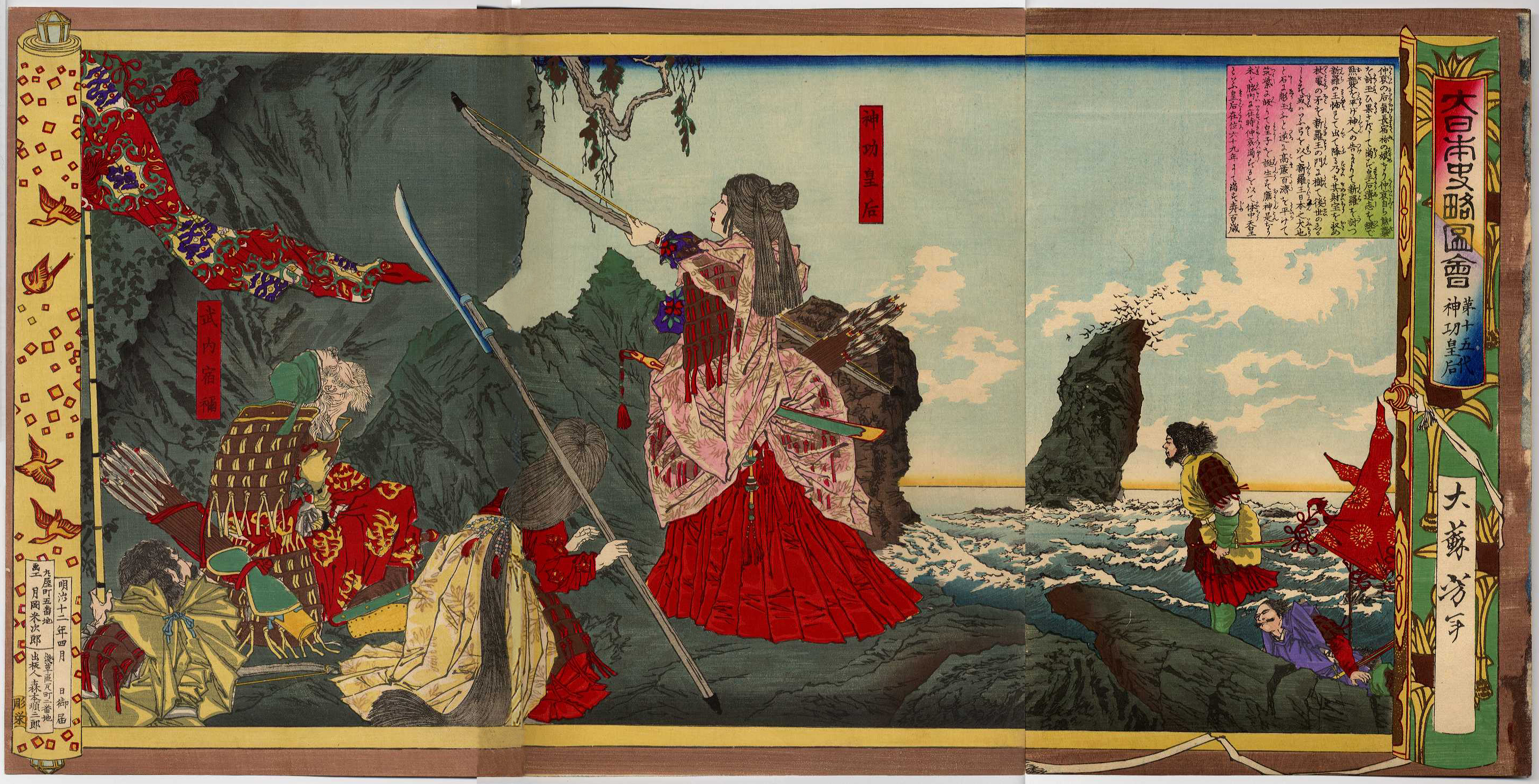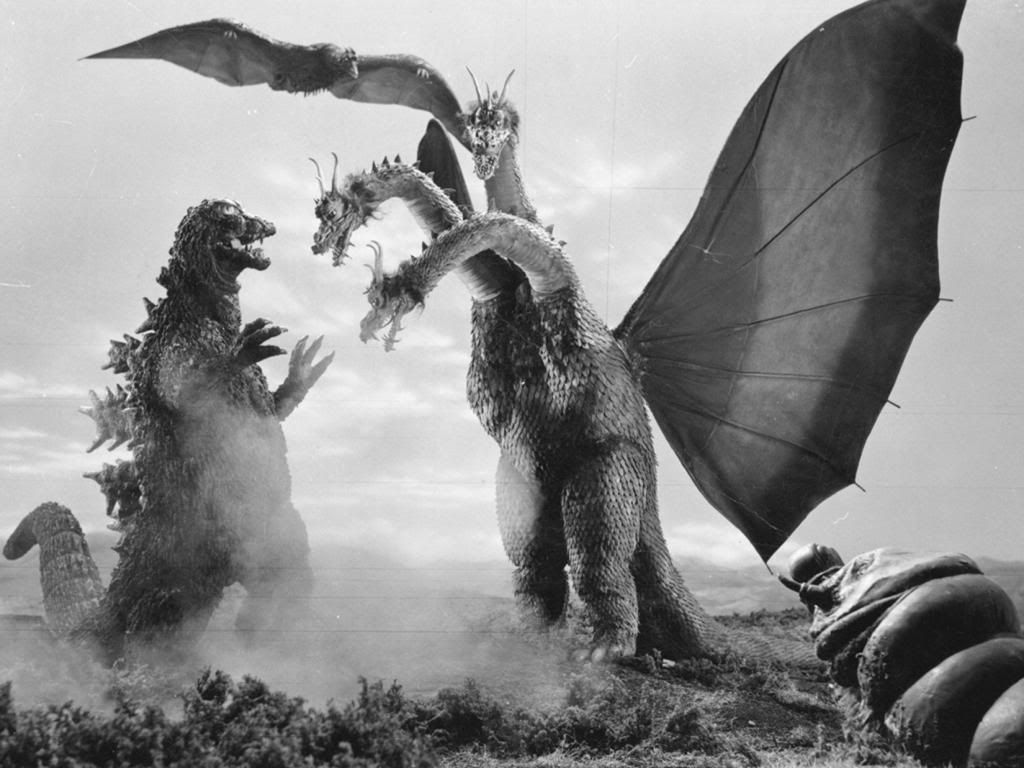- 29 Jul 2013 20:42
#14280751
Jingū tennō or Empress Jingu (thats how you call her in the west) is a legendary tennō who ruled Japan from the year 201 - 269 as her son became tennō. She is a very popular person in japanese history because she is unique in her ways. She is one of just few female tennō and she was a powerful leader. She started an invasion against Korea and was victorious. The scources of that time are rare but a japanese invasion into Korea during that time is reported in chinese scources. Jingū tennō is speacial not only because she was a women on the japanese throne, but also because she did held all the power in her hands. She did not sit in her palace and just give orders. She went herself to Korea to lead the invasion.
Here you see her arriving in Korea:

Here she gives orders to her invasion troops:

Jingū tennō fishing:

Jingū tennō is very very popular in Japan. She is celebrated in festivals for bringing Korea under japanese control and her brave and wise leadership:

She is so popular and i believe she is one of the greatest female leaders in history.
Here you see her arriving in Korea:

Here she gives orders to her invasion troops:

Jingū tennō fishing:

Jingū tennō is very very popular in Japan. She is celebrated in festivals for bringing Korea under japanese control and her brave and wise leadership:

She is so popular and i believe she is one of the greatest female leaders in history.





























 - By wat0n
- By wat0n